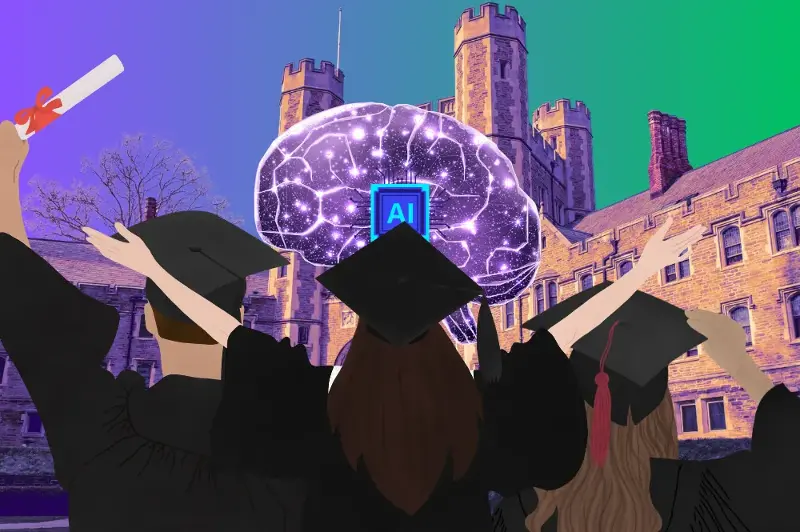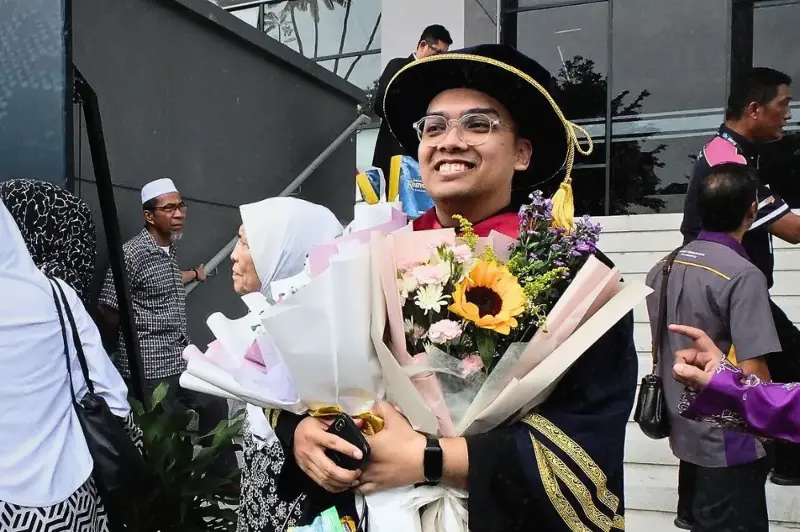
WHEN I walked across the stage for my PhD convocation recently, I should have felt nothing but joy. Years of late nights, rejections, revisions, and perseverance had finally crystallised into a single scroll.
My family was proud. My friends celebrated. Yet as I stood there, I could not shake a quiet discomfort. The ceremony marked not only my own achievement but also a reminder of what higher education is supposed to mean and how far it has drifted from that purpose.
As a lecturer, I see that drift every semester. As an observer of social media, I see it echoed in memes, threads and viral posts about surviving university.
The pattern is hard to miss. Students no longer talk about what excites them intellectually. They talk about how to pass with the least effort possible.
The proudest stories are not about discovery or transformation but about outsmarting the system. It feels like watching a buffet line where people pay a premium price only to fill their plates with plain rice because technically it still counts as food.
This is not laziness. It is adaptation.
Students are responding rationally to a system that treats education as a transaction. Tuition fees keep rising. Living costs are crushing. Loans pile up. Degrees are marketed as investments.
Under these conditions, curiosity becomes a luxury. The question shifts from "What can I learn" to "What is the bare minimum I need to pass." Learning is tolerated only if it promises a measurable return.
I see this mindset in my classrooms. Many students have mastered the art of what I call efficient grade optimisation. They scrutinise rubrics like legal documents. They trade past year papers like collectibles. They place their effort only where the GPA scoreboard registers points. They know the rules of the game so well that they forget the game itself was supposed to change them. By the end, they graduate not as cultivated thinkers but as polished credential holders.
Artificial intelligence has accelerated this culture. Tools such as ChatGPT and text summarisers were supposed to help students think deeper by lightening menial work. Too often they are used as shortcuts.
Essays are generated in minutes, readings are replaced by AI digests, assignments are outsourced to prompts. It is help, but not the help students actually need. Instead of expanding horizons, AI enables a new layer of academic minimalism.
And yet AI itself demands more critical literacy, not less. To question its biases, interpret its limits and apply it ethically requires the very intellectual muscles students are letting atrophy.

Outside the classroom, the chorus of anti-intellectualism grows louder.
Every time I scroll TikTok or Instagram, I see a new self-proclaimed guru dismissing universities as scams. A fitness influencer declares that a degree is worthless because he makes six figures selling supplements.
A motivational speaker tells young people to drop out and "just start a business" as if access to capital and social networks were equally distributed. A tech founder tweets that studying literature is a waste of time because AI will soon generate novels anyway.
These voices repeat the same mantra. University is obsolete. Knowledge that is not immediately profitable is irrelevant.
The problem is that this chorus is seductive. It promises shortcuts. It tells students they can bypass years of study and leap straight into success. It makes serious scholarship sound like a boring detour on the road to money and influence.
The dropout turned billionaire myth gets recycled endlessly. Yet for every Mark Zuckerberg there are thousands of dropouts who never become household names, who end up driving e-hailing cars or juggling multiple jobs to get by. These stories rarely go viral because they lack glamour.
What gets lost in this narrative is that theory underpins practice. A coder with no ethical framework might build tools that harm more than they help. A doctor without training in medical ethics can become dangerous.
Employers consistently say they value critical thinking, adaptability and problem solving above narrow technical skills. These are precisely the skills that emerge from wrestling with difficult and abstract ideas. They are also the very skills being abandoned in the rush toward efficiency.
The consequences are already visible. Graduates can handle known problems but stumble when asked to anticipate the unknown. They do fine in entry level roles but falter when leadership or originality is required. They hold certificates but lack transformation.
This is not only about individual careers. Society itself bears the cost.
The challenges we face such as climate change, disinformation, global inequality and the governance of AI are not simple technical puzzles. They require wisdom, synthesis and intellectual resilience.
A workforce trained narrowly for credentials will be outmatched. Shallow thinkers also make for fragile democracies. Anyone who has watched misinformation spread like wildfire through WhatsApp family groups knows how costly the absence of critical faculties can be.
I do not exempt universities from responsibility. Too often courses fail to show why theory matters. Assessments reward memorisation instead of exploration. Marketing emphasises employability while leaving intellectual growth as an afterthought.
Institutions must reimagine themselves not as degree factories but as spaces where curiosity is rewarded, where abstract knowledge connects meaningfully to practice, and where failure is framed as part of genuine learning rather than just lost GPA points.
But institutions alone cannot fix this. Culture must shift. We need to tell different stories. Stories of graduates who studied subjects considered impractical and went on to shape industries, policies, and ideas.
I think of literature students running corporations, philosophy graduates drafting constitutions and history majors becoming leaders. These stories exist, but they rarely circulate with the same glamour as the startup dropout myth.
The hardest truth is that students themselves hold the final responsibility. They must choose to reject the bare minimum bargain. They must seek courses that stretch rather than cushion them. They must approach professors not only for exam tips but for conversations about ideas. They must be willing to learn even when the payoff is not immediate. Credentials might secure a first job, but cultivated minds build lasting careers and societies worth living in.
As I reflect on my own journey, I know my PhD scroll is not just a piece of paper. It is evidence of the struggles, doubts, breakthroughs and transformations that shaped me. That is what a university is supposed to do. It is not a transaction but an invitation.
The question, for today’s students, is whether they will RSVP as true participants or simply show up for the convocation buffet.
Muhammad Naim Muhamad Ali, PhD, also known by the moniker Naim Leigh, is a Communication and Media Studies lecturer at the University of Wollongong Malaysia. The views expressed in this article are his own and do not necessarily reflect those of Sinar Daily.
